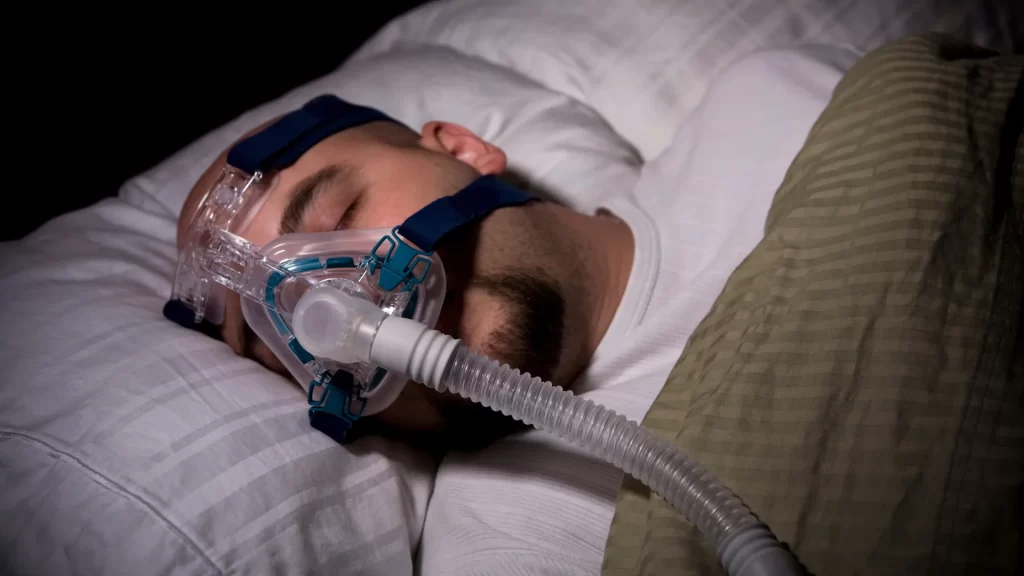Posted on Saturday, March 2nd, 2024 at 10:03 pm
If you suffer from sleep apnea, getting properly diagnosed and treated is crucial for your health and quality of life. But with various medical specialties involved in sleep apnea care, you may feel unsure about which type of doctor to see.
Specialties Involved in Sleep Apnea Treatment
Sleep apnea sits at the intersection of multiple medical disciplines. As a result, several types of doctors play a role in identifying and managing this condition:
Primary care physicians (PCPs): As your first point of contact, PCPs like family doctors and internists often screen for sleep apnea and make referrals to specialists. Some PCPs directly manage mild cases of sleep apnea.
- Sleep medicine specialists: These physicians have advanced training in diagnosing and treating sleep disorders like sleep apnea. They interpret sleep studies and develop comprehensive treatment plans.
- Ear, Nose, and Throat (ENT) doctors: ENTs, or otolaryngologists, specialize in the anatomy of the upper airway. They evaluate whether structural issues like nasal obstructions or enlarged tonsils contribute to sleep apnea and if surgery could help.
- Dentists and oral surgeons: Dentists trained in dental sleep medicine fit patients with oral appliances that reposition the jaw and tongue to keep the airway open. Oral surgeons perform procedures to treat the anatomical causes of sleep apnea.
- Pulmonologists (lung doctors): These specialists focus on respiratory disorders and are well-versed in sleep-related breathing problems like sleep apnea. They often manage more complex sleep apnea cases.
- Neurologists: Some neurological conditions increase sleep apnea risk. Neurologists identify these underlying disorders and determine how they impact sleep apnea and its treatment.
While having many specialties dedicated to sleep apnea care means more expertise and options, navigating can also feel daunting. Let’s clarify sleep medicine specialists’ specific role and how they collaborate with other physicians to streamline the process.
The Role of Sleep Medicine Specialists
Sleep medicine specialists undergo additional training to master the complexities of sleep disorders like sleep apnea. Their expertise spans the full continuum of sleep apnea care:
- Diagnosis: Sleep medicine doctors are uniquely qualified to diagnose sleep apnea. They review your symptoms, medical history, and exam findings to determine if a sleep study is necessary. Then they analyze the sleep study data to make an official diagnosis.
- Treatment planning: With their comprehensive understanding of sleep apnea therapies, sleep specialists develop personalized treatment plans. They explain the benefits and drawbacks of options like CPAP, oral appliances, and surgery so you can make an informed decision.
- Ongoing management: Sleep medicine specialists regularly assess your progress and adjust your treatment plan. They troubleshoot issues like CPAP mask discomfort, monitor for complications, and coordinate care with your other doctors.
While capable of handling all facets of sleep apnea care, sleep specialists recognize the importance of a multidisciplinary approach. They work hand-in-hand with other experts to ensure you receive well-rounded, targeted care.
Collaboration Between Physicians in Sleep Apnea Care
Sleep apnea doesn’t occur in isolation. It frequently coincides with other health problems like obesity, heart disease, and diabetes. For many patients, addressing sleep apnea requires a team effort between multiple specialists.
Sleep medicine doctors take the lead in coordinating this collaborative care. They refer to and consult with other specialists based on your unique needs and maintain open lines of communication with your medical team.
Similarly, when an underlying condition like a neurological disorder complicates your sleep apnea, your sleep specialist and neurologist join forces. They work together to optimize your treatment regimen and address any adverse interactions between therapies.
This collaborative approach extends to CPAP therapy and oral appliances. Sleep specialists partner with respiratory therapists to educate you on CPAP use and routinely check in to resolve any difficulties. When an oral appliance is appropriate, your sleep doctor refers you to a qualified dentist and shares key information to inform device selection and fitting.
By orchestrating this team-based care, sleep medicine specialists ensure you receive comprehensive, cohesive treatment. Their collaboration with other doctors doesn’t just improve your sleep apnea – it enhances your overall health and well-being.
The path to effective sleep apnea care begins with finding a knowledgeable, dedicated sleep medicine specialist. At [firm name], our board-certified sleep doctors are committed to providing the highest individualized care.
We understand how debilitating untreated sleep apnea can be and are here to guide you every step of the way. Our collaborative approach means you have a well-coordinated team of experts working together to help you find relief and get back to restful sleep.
Contact Silent Night Therapy
If you’re ready to take control of your sleep apnea, we’re here to help. Call us today at [phone number linked=true] or reach out online to schedule a consultation with one of our compassionate sleep specialists. Together, we can develop a personalized plan to diagnose and effectively treat your sleep apnea so you can reclaim your health and quality of life.

